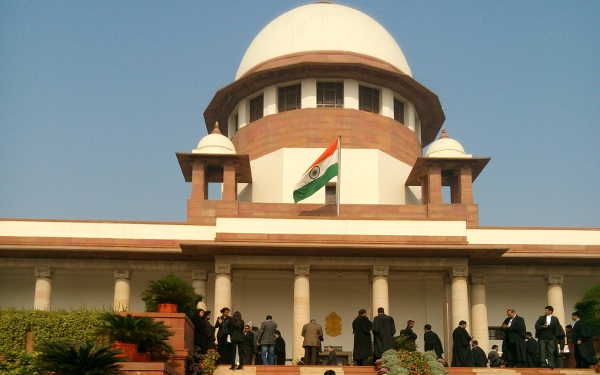New Delhi: The Supreme Court Friday maintained that the Chief Justice of India (CJI) is “the master of the roster” and has the prerogative and authority to allocate cases to different benches of the apex court.
A bench comprising justices A K Sikri and Ashok Bhushan in their separate concurring verdicts said the CJI occupies the role of “first among equals and is empowered to exercise leadership in administration of court” which includes assignment of cases.
The verdict came on a plea of former law minister Shanti Bhushan challenging the existing roster practice of allocation of cases in the apex court by the Chief Justice of India.
A five-judge constitution bench and a three-judge bench have already held that the CJI is the master of the roster.
In his verdict, Justice Sikri said, “As far as the role of CJI as master of the roster is concerned, there is no dispute that he is the master of roster and has authority to allocate cases to different benches of the Supreme Court.”
Concurring with Justice Sikri’s opinion, Justice Bhushan said the CJI has the prerogative to allocate cases and nominate benches to hear them.
Justice Bhushan also said that there are rich conventions and practices of SC which are time-tested and should not be tinkered with.
Justice Sikri said that it would be difficult to accept the submission of the petitioner that the term Chief Justice of India under the Supreme Court Rules should be read as the collegium comprising five senior-most judges for allocating cases.
“The erosion of judiciary in the minds of people is the greatest threat to judicial system,” he said, adding that CJI, being the senior-most judge of the Supreme Court is the “spokesperson and leader of judiciary.”
The bench said that no system is foolproof and there is always scope for improvement in functioning of judiciary.
In his PIL, Bhushan had alleged that “master of roster” cannot be an “unguided and unbridled” discretionary power, exercised arbitrarily by the CJI by hand-picking benches of select judges or by assigning cases to particular judges.
CJI’s prerogative to allocate cases: SC
